2025 Conference Speakers
Pre-Conference Workshops

How to Mentor Anyone in Academia
Maria LaMonaca WisdomDuke University
Maria LaMonaca Wisdom is assistant vice provost for faculty advancement at Duke University. Formerly a professor of literature and a graduate student adviser, she now holds a faculty appointment in the Program in Education at Duke. She is also a professional certified coach (PCC) through the International Coaching Federation.
Across higher education, we can no longer assume that our mentees—whether graduate students, postdoctoral
researchers or junior faculty, will follow closely in our footsteps. Today’s academic mentees come from a
wider range of backgrounds, value different things, and are less likely to pursue careers in academia. They
may also hold mentors to a higher set of expectations, including more intensive forms of psychological and
emotional support. Unfortunately, many academic mentors rely on traditional, increasingly ineffective modes
of mentoring that foreground subject matter expertise (advice) and personal example (role-modeling).
How do you mentor someone who won’t become you?
In this highly interactive workshop for faculty and higher-ed leaders, we’ll explore practices outlined
in How To Mentor Anyone in Academia (Princeton UP 2025) that can empower academic mentors to
mentor anyone. These include sustaining a robust practice of self-reflection; engaging in active
listening, powerful questioning, and other “coach-like” behaviors; and learning from evidence-based
theories of human motivation and change management. Because no successful mentoring relationship happens
in a vacuum, we’ll also discuss strategies for partnering with mentees, with colleagues, and with
broader peer networks to build more robust cultures of mentoring for all.

Designing, Managing, and Evaluating Mentoring Programs
David LawUtah State University
David Law is an associate vice president at Utah State University (USU) and oversees the Uintah Basin campuses. He is a family studies professor. Law earned his bachelor's degree from USU, his master's degree in marriage and family therapy (MFT) from the University of Wisconsin-Stout, and his Ph.D. in MFT from Brigham Young University. He has published in marriage and family therapy, family life education, the scholarship of teaching and learning, and mentoring in academia. He has received several awards for mentoring undergraduate students. Law has overseen the design, implementation, and evaluation of the faculty-to-student mentoring programs for the Uintah Basin campus and the USU statewide campus system. Law is co-editor of the recently published book Making Connections: A Handbook for Effective Formal Mentoring Programs in Academia. Law consults with the Mentoring Institute at the University of New Mexica to develop mentoring micro-credentials.
You can strengthen your effectiveness as a mentoring program coordinator or manager through this
interactive workshop. Using evidence-based practices, we will explore the full lifecycle of mentoring
programs—from design and management to evaluation. Participants will work with a copy of Making
Connections: A Handbook for Effective Formal Mentoring Programs in Academia (Law & Dominguez,
2023).
By the end of the workshop, participants will be able to:
- Understand the phases of program development
- Define goals, objectives, and outcomes
- Create an operational definition of mentoring influenced by theory
- Align institutional needs with program goals
- Develop a theory of change and logic model
- Create an assessment and evaluation plan
- Clarify expectations and deliver goal-aligned activities
- Monitor activities and relationships for early intervention
- Create a one-page program theory of change logic model for stakeholders and evaluation
This session is for both new and experienced program managers. Participants are encouraged to share examples from their program to ensure practical, engaging learning.
Plenary Sessions
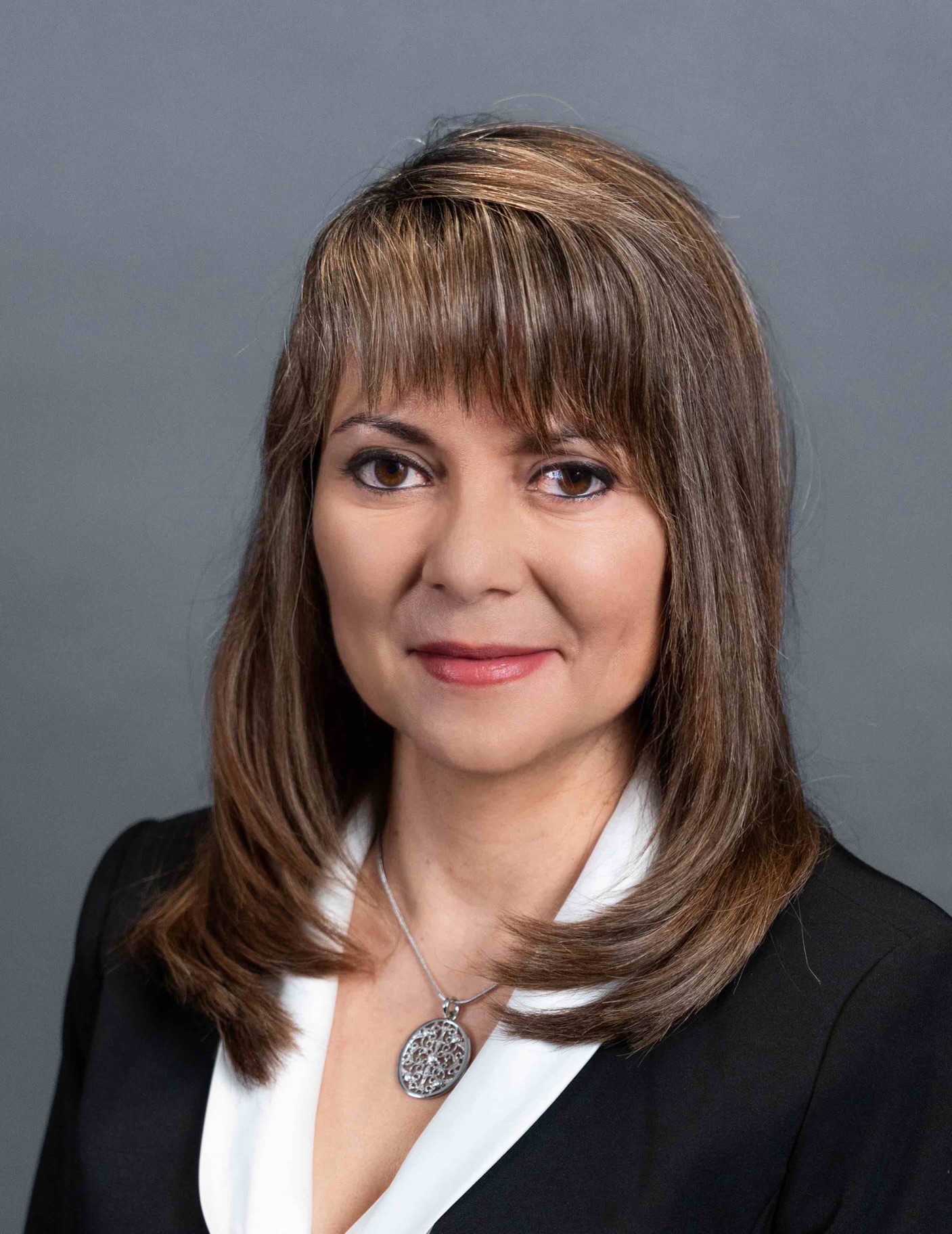
Developmental Networks Ecosystems
Nora DominguezUniversity of New Mexico
Nora Dominguez, Ph.D., is the Director of the UNM Mentoring Institute, President Emeritus of the International Mentoring Association, and a professional consultant. She earned her Ph.D. in Organizational Learning and Instructional Technologies from the University of New Mexico (UNM) and has over 25 years of experience developing learning strategies to improve organizational and individual performance. Dominguez is a member of the editorial board of the International Journal for Mentoring and Coaching in Education (Emerald, UK) and Managing Editor of the UNM online journal The Chronicle of Mentoring and Coaching. She is co-editor and chapter contributor to the SAGE Handbook of Mentoring (2017), chapter contributor to the Wiley International Handbook of Mentoring (2020), co-editor of the books Making Connections: A Handbook for Effective Formal Mentoring Programs in Academia (2023) and Reciprocal Mentoring (2024), and author of several articles published in peer-reviewed journals.
This session examines the evolution of traditional mentoring models into dynamic, collaborative developmental networks ecosystems comprising diverse, reciprocal, identity-affirming, and evolving relationships. Rather than conceptualizing mentoring as a hierarchical or one-directional process, this session repositions it as a distributed, networked practice embedded in broader institutional systems. Developmental networks ecosystems emphasize the interdependence of formal and informal relationships, the distributed nature of leadership and learning, and the importance of context in shaping access to developmental resources. Participants will engage with multiple perspectives on how developmental networks function across career stages and institutional contexts, and how they can be intentionally cultivated to support individual and organizational wellbeing.
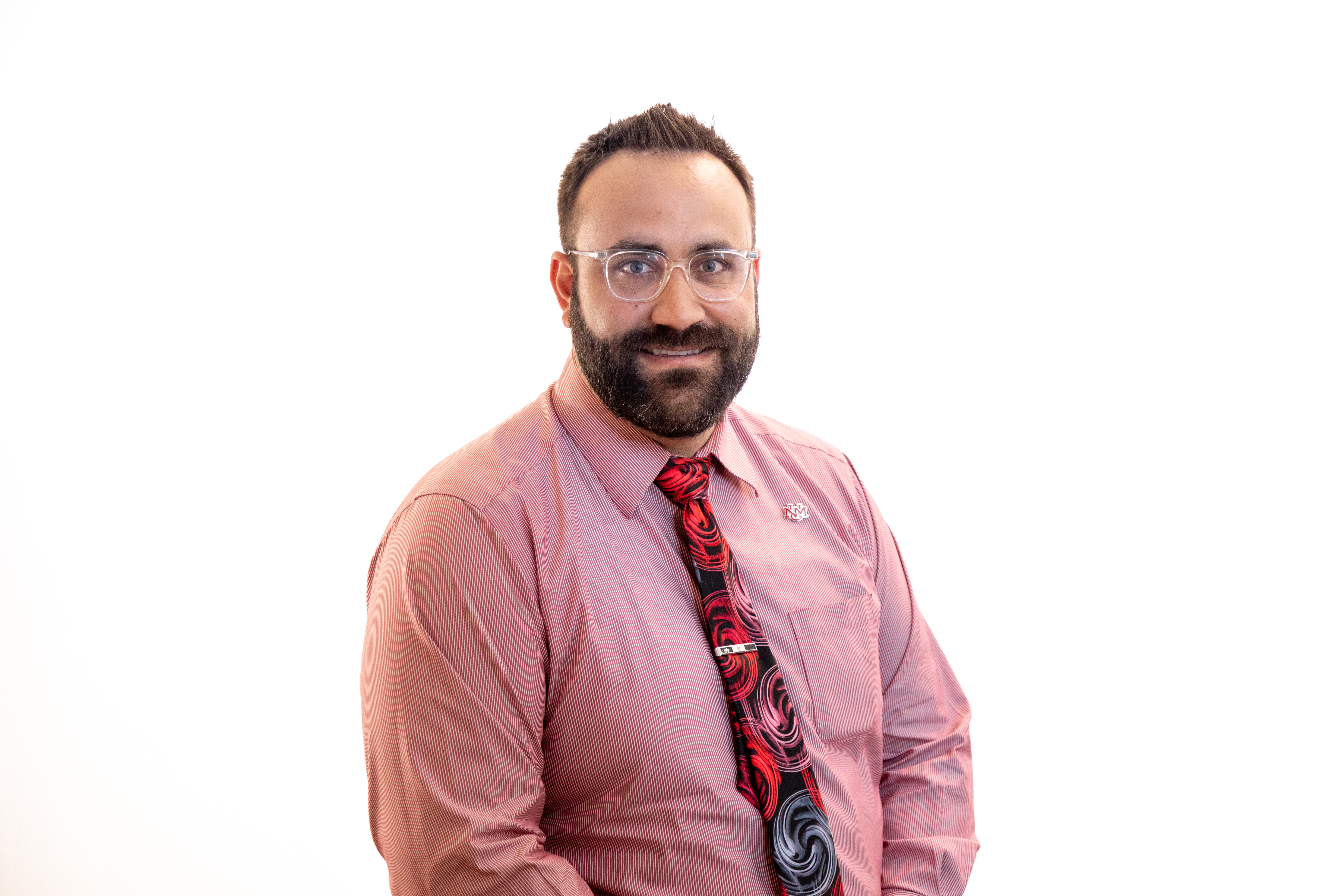
Whole-Person Mentoring: Elevating Relationships Through the Eight Dimensions of Wellness
Greg GoldenUniversity of New Mexico
Greg has been part of the Dean of Students Office since June 2017. He has worked in student conduct, orientation, the National Student Exchange, and most recently, in supporting students through case management and well-being efforts within the Dean of Students Office. Greg enjoys spending time with his family and cooking outdoors when possible. He is a Lobo sports fan, especially basketball, and enjoys football in the fall.
Mentoring is most impactful when it supports the whole person, not just their academic or professional development. This session explores how mentors can deepen their relationships and enhance their impact by integrating SAMHSA’s Eight Dimensions of Wellness into their approach. Participants will learn how emotional, environmental, financial, intellectual, occupational, physical, social, and spiritual wellness all influence a mentee’s growth, motivation, and ability to thrive. Through guided reflection, thought-provoking questions, and a hands-on partner activity, mentors will practice engaging in wellness-centered conversations that promote trust, resilience, and purpose. This framework empowers mentors to recognize when a mentee’s struggles may lie outside their usual areas of focus, and how to respond with empathy, support, and appropriate resources. Whether you are a new mentor or looking to take your mentorship to the next level, this session will help you build stronger, more holistic, and more meaningful mentoring relationships through a wellness-informed lens.
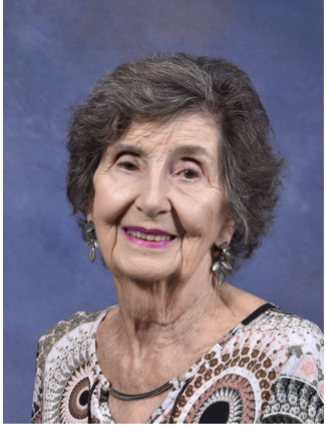
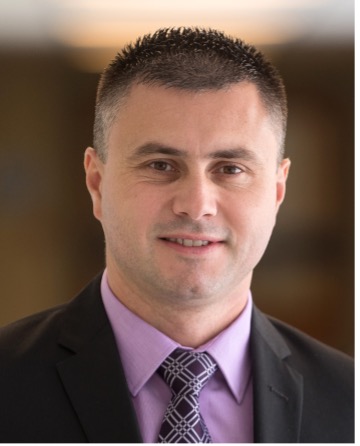
Mentoring for Wellbeing: A Pathway to Flourishing in Organizations
Frances Kochan & Benjamin KutsyurubaAuburn University & Queen's University
Frances Kochan, PhD, is a Wayne T. Smith Distinguished Professor and Dean Emeritus, College of Education, Auburn University, Auburn Alabama, USA. Her research on mentoring focuses on establishing and assessing mentoring relationships and programs and on cultural aspects in the mentoring process. She was founder and past series editor for Perspectives on Mentoring published by Information Age Press. She has edited or co-edited numerous books on the topic and has published over 100 articles and book chapters. She has been keynote speaker for numerous associations including The Mentoring Institute, The International Mentoring Association, and The Association of Collegiate Schools of Planning. Dr. Kochan has served as secretary and chair of the Mentoring and Mentorship Special Interest Group of the American Education Research Association. She also served on the Executive Board of the International Mentoring Association. She is a recipient of the University Council on Educational Administration Jay Scribner Mentoring Award for her dedication to mentoring students and faculty and for fostering mentoring initiatives. She was selected as the 2011 outstanding reviewer for the Mentoring and Tutoring Journal. She was also named the 2016 Outstanding Reviewer for International Journal of Mentoring and Coaching in Education. She received 2024 International Mentoring Association Lifetime Achievement Award, She is a founder of Kochan Consultants LLC.
Benjamin Kutsyuruba, PhD, is a Professor in Educational Policy, Leadership, and School Law in the Faculty of Education at Queen’s University. Throughout his career, Benjamin has worked as a teacher, researcher, manager, and professor in the field of education in Ukraine and Canada. His research interests include educational policymaking; educational leadership; induction, mentorship and development of teachers; trust, moral agency, and ethical decision-making in education; international education; school climate, safety, well-being, and flourishing; and, educational change, reform, and restructuring. His current research projects focus on positive leadership, flourishing in schools, educator wellbeing, and teacher induction and mentoring in international settings. He is a founder of MentorLead, a mentorship and leadership consulting business. He is actively involved on the Board of Directors for the International Mentoring Association (IMA) and is currently a President-Elect of IMA (2024-2026). He is a series editor for the Perspectives on Mentoring book series with Emerald.
Mentoring is recognized as a key developmental resource that facilitates the culture of growth and learning in various organizational settings. Less often recognized is the positive impact mentoring can have on the mental health and wellbeing of both the mentor and mentee. This plenary session will focus on how mentoring can promote mental health, build resilience, develop capacity to maintain, sustain, and promote emotional, psychological, and social wellbeing and ultimately foster flourishing, not only for mentors and mentees but also for all in various organizational settings. Grounded in the research on positive organizations, positive leadership, and appreciative inquiry, the presenters will share effective mentoring approaches, models, and strategies for nurturing and promoting wellbeing and flourishing in organizations.
The session will include discussions of organizational factors that may hinder mentoring initiatives for wellbeing and key ways to foster wellbeing through mentoring. The session will include implications for research, practice, and leadership in the area of mentoring for wellbeing in organizations. Participants will have the opportunity to reflect upon the issues and findings related to wellbeing and the implications and application of the content to their own settings.
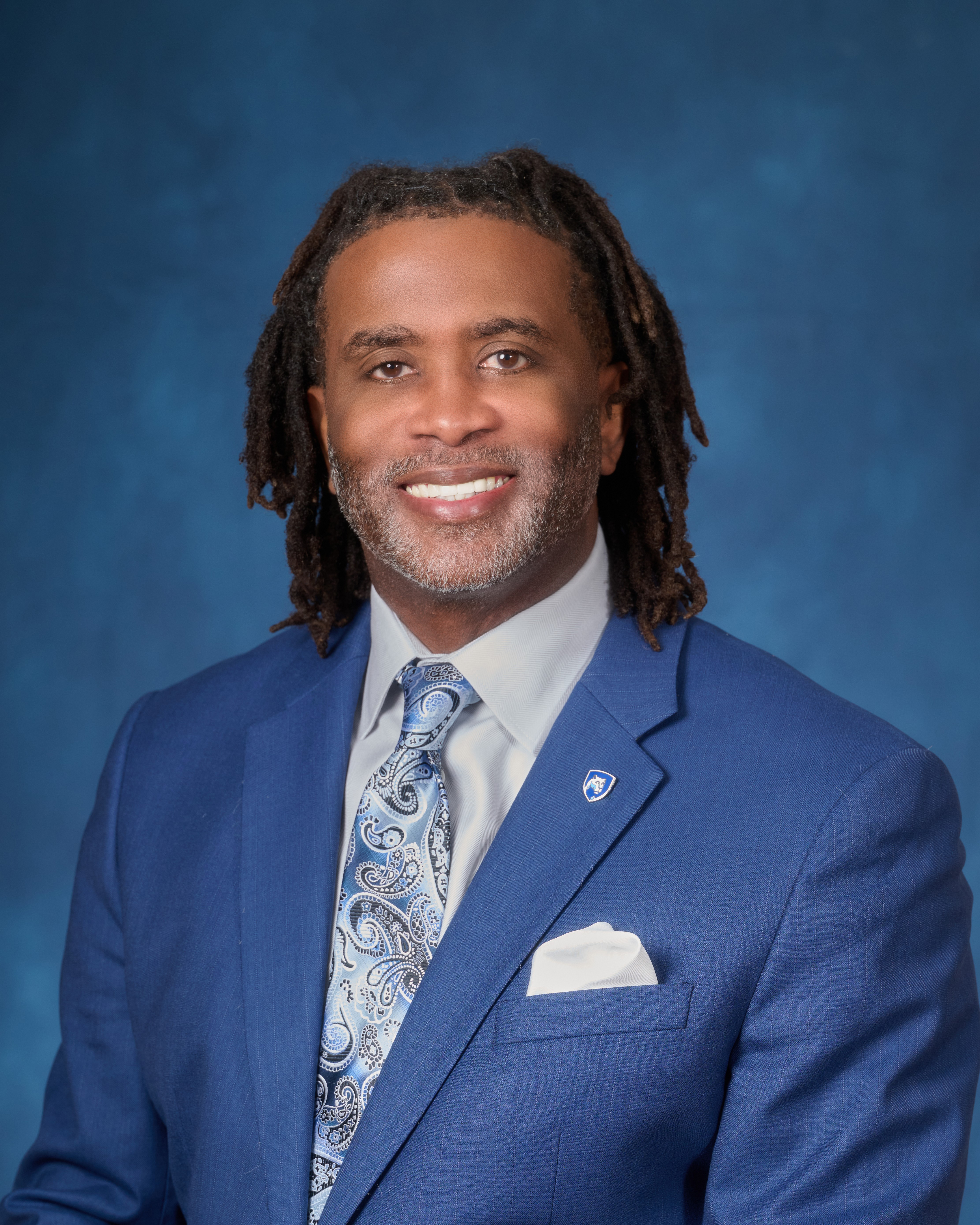
Beyond the Degree: Mentoring Graduate Students for Workforce Success and Wellbeing
Levon EstersPenn State
Dr. Levon T. Esters is the vice provost for graduate education and dean of the J. Jeffrey and Ann Marie Fox Graduate School at Penn State.
He is a nationally recognized scholar on mentoring, equity, and diversity in STEM-based agricultural and life sciences disciplines. His research focuses on the mentoring needs of Black graduate students, the STEM career development of students attending Historically Black Land Grant Universities, and graduate student development.
In 2024, he and Dr. Mary Beth Gasman co-authored a book, *HBCU: The Power of Historically Black Colleges and Universities*. Prior to joining Penn State, Dr. Esters held leadership roles at Purdue University. He earned his B.S. from Florida A&M, M.S. from North Carolina A&T, and Ph.D. from Penn State.
Graduate education is not just about earning a degree—it is about preparing students for meaningful careers
and lifelong success. In this session, we will explore how mentoring graduate students through a
developmental network approach fosters both individual wellbeing and organizational growth.
Drawing on research and personal experience, Dr. Esters will share strategies that support career
readiness, resilience, and holistic development. This includes the role of faculty, peers, and industry
professionals in creating mentoring ecosystems. Institutions can integrate these practices into
workplace cultures to improve student outcomes and organizational performance.
Participants will leave with actionable strategies for building mentoring networks that empower graduate
students while fostering a sense of purpose, balance, and belonging.

Developmental Networks for Wellbeing
Dionne ClabaughAngle 4 Solutions
Dionne Clabaugh EdD loves working with people wanting to become resilient thoughtful humans! She is a facilitator, mentor, author, partner, parent, peace educator, musician, quilter, and gardener.
Dr. Dionne’s work is grounded in self-determination theory and promotes human development through engagement. She designs and facilitates mentoring, education, communication, cultural competence, life-span development, and women's intergenerational and intercultural relationships. Her higher education consultations build and assess mentoring programs to develop faculty mentors and educators who are self-aware, kind, and supportive humans. Dionne’s facilitation applies culture-centeredness, autonomy-supportiveness, reflective practice, appreciative inquiry, and collaboration to build self-directed learning environments. Currently her private practice and faculty work focuses on human development, mentoring, and sewing techniques so that one’s life may be more sincere and productive. Above all, Dionne seeks to promote deep learning and far transfer in ways that are respectful and generative for all.
This plenary session will explore developmental mentoring networks by describing their structure and intended impact on one’s personal and professional wellbeing. Interactive opportunities for story-sharing seek to inform and inspire participants to consider multiple points of view about the benefits of multiple mentoring relationships, both as a mentor and mentee. Participants will co-construct initial beliefs about these benefits specifically for their own wellbeing and professional success.
The experiences and insights shared are intended to enhance participant engagement at this conference so they can maximize this experience and better leverage mentoring networks for their personal, professional, and organizational development through inspiration and self-directed action. I hope to see you there!
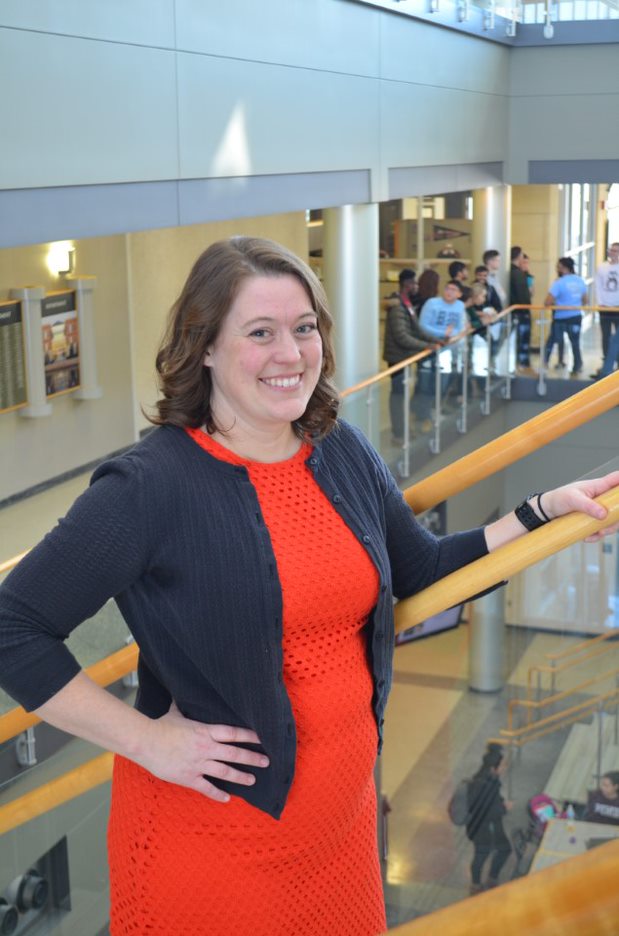
Mentoring Into Retirement
Bethany CockburnNorthern Illinois University
Bethany Cockburn, PhD, is an Associate Professor of Management at Northern Illinois University. Her research focuses on the critical areas of life transitions, workplace stress, and the impact of relationships on work and non-work outcomes. A particular area of expertise is the transition to retirement, including its effects on identity, well-being, and social connections, especially for those leaving deeply meaningful careers. She also investigates how prior life transitions and relationship networks, including mentoring, influence the retirement process. Furthermore, her work examines the profound effects of stress on physical and mental health, as well as mortality. Her research has been published in leading academic journals.
Retirement, a significant life transition, presents both exciting opportunities and formidable challenges. Millions of people in the United States alone transition into retirement annually. While financial planning is essential, preparing for the emotional and identity-related aspects of retirement are often overlooked. This session examines the challenges associated with this transition, including loneliness, health decline, and mortality risks. The presenter will share research findings on the impact of relationships, specifically mentoring, in mitigating these challenges and promoting a positive retirement experience. Participants will explore practical strategies for cultivating effective mentoring relationships, both personally and within organizational settings, and will engage in reflective exercises to apply these concepts to their own experiences and contexts.
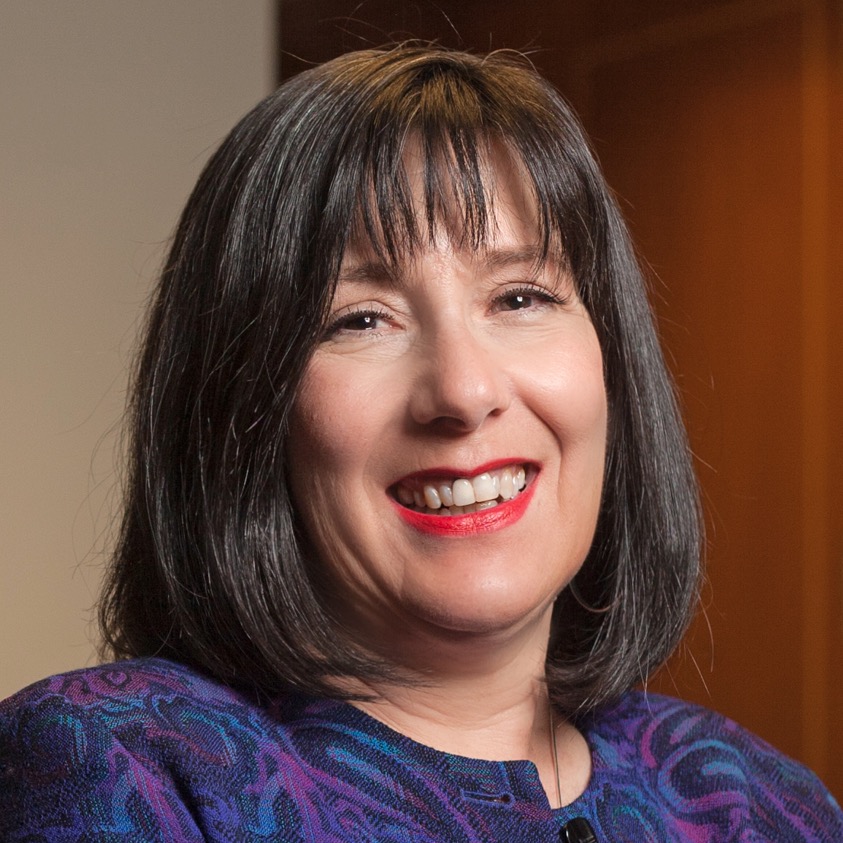
Strengthening Mentorship: The Role of Organizational Climate and Developmental Networks
Beth TiggesUniversity of New Mexico
Dr. Beth Tigges is a program director in the Division of Nursing at the National Institute of Nursing Research (NINR).
She leads efforts to advance scientific programs focused on symptom science and self-management in underserved populations. Prior to joining NINR, Dr. Tigges was a professor at the University of New Mexico College of Nursing and has extensive experience in community-based participatory research and adolescent health.
Effective mentorship, including the practice of developmental networking, is crucial for personal and professional growth. Organizational climate plays a significant role in shaping mentoring practices.
Strategies to improve mentoring environments include fostering leadership support, setting clear expectations, and offering structured mentoring programs. Recognizing mentoring in evaluations and career advancement is also key.
Dr. Tigges will also discuss the importance of developmental networks—groups of mentors, allies, and sponsors who provide diverse support—and how they contribute to resilience and career success. Organizational policies must align to support this culture shift, and future research is needed to evaluate these interventions.

Hosting an Ecology for Wellbeing in Our Organizations
Keith WalkerUniversity of Saskatchewan
Keith is husband to Viv, father to eight adult children (half by law J) and grandfather to seven. He is determined to be a diligent learner-leader, to live in loving relationships, aligned with truth, energized by grace, and attuned to wisdom from above. Imperfectly, he strives to be a person who humbly seizes opportunities to foster wellbeing, trust, and hope through relationships. Keith’s past and present roles have included: manager, international coach (Paralympics), high school teacher-leader and coach, educational administrator and director, cleric, organization and governance consultant, mentee/mentor, and professor of educational leadership and followership. Keith’s teaching, research and writing passions have focused on leadership integrity, leader and organizational development, as well as noticing, nurturing and sustaining wellbeing in communities of practice.
How might we be encouraged to continue to re-think about our organizations as places and spaces for fostering wellbeing? This session will invite our reflections on the vital priority, dynamics, and pragmatics of personal, interpersonal, reciprocal, and collective wellbeing in organizations. As leaders, followers and mentors, what are the scripts that we have come to believe about our roles and relationships that support wellbeing? What are the values and habits that help and hinder wellbeing? Viewed through a systems and ecological set of perspectives, we will review three key “hosting virtues” and the place of adaptive and leaderful strategies and practices that give attention to noticing, nurturing and sustaining overall organizational wellbeing.

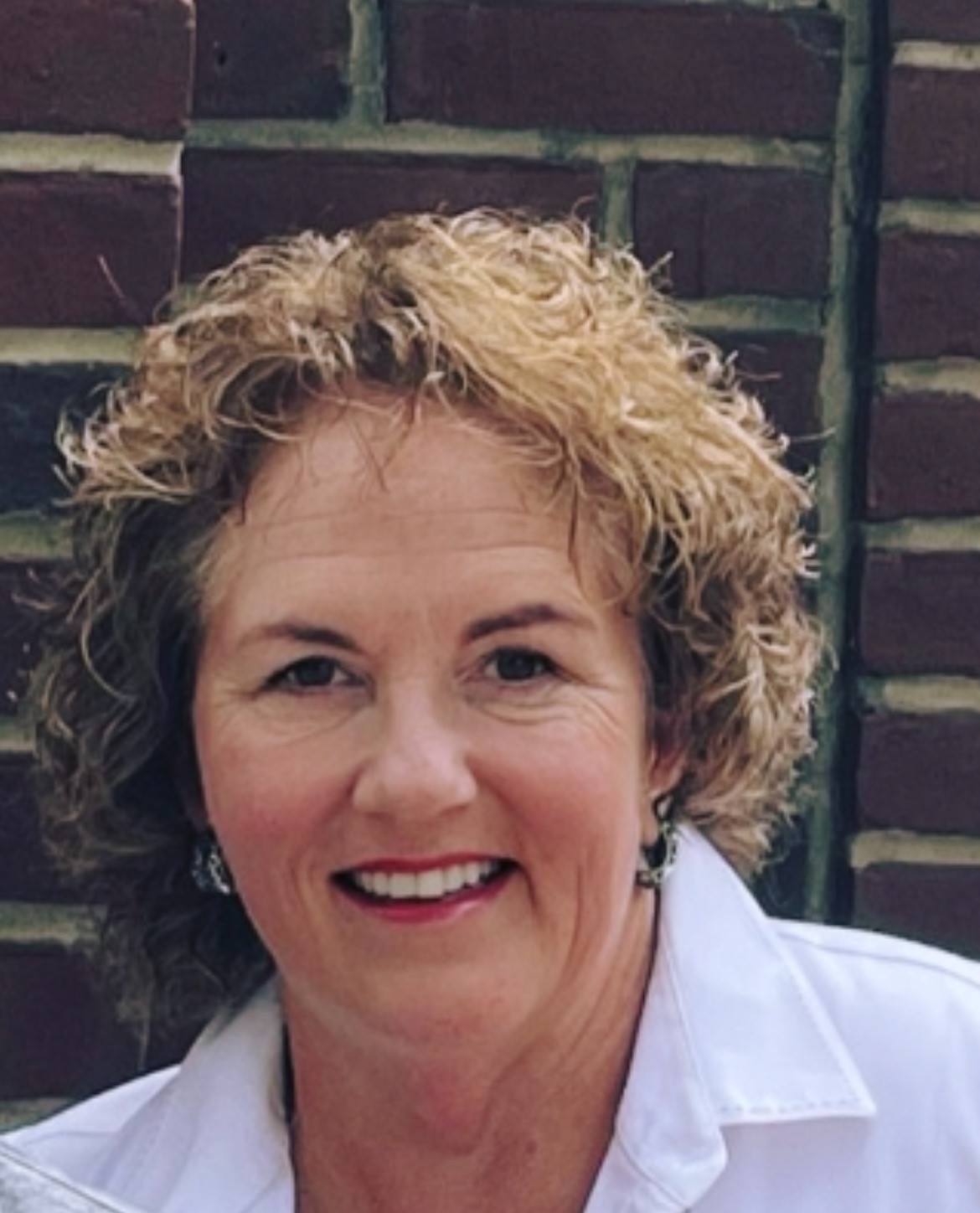
Wellbeing Matters! A Mentoring Model for Educational Settings
Carol A. Mullen & Ellen H. ReamesVirginia Tech, Auburn University
Carol A. Mullen, PhD, is Professor of Educational Leadership and Policy Studies at Virginia Tech and a Fulbright Senior Scholar alumnus. She is an internationally acclaimed, award-winning mentoring researcher who uses equity/justice and policy lenses. Her books include Equity in School Mentoring and Induction (2025), Handbook of Social Justice Interventions in Education (2021, edited), and The SAGE Handbook of Mentoring and Coaching in Education (2012, coedited). She is former editor of the Mentoring & Tutoring journal and past-president of the International Council of Professors of Educational Leadership (ICPEL), Society of Professors of Education, and University Council for Educational Administration (UCEA). Carol was honored with UCEA’s Master Professor Award and Jay D. Scribner Mentoring Award, in addition to ICPEL’s Living Legend Award and the University of Toronto’s Leaders and Legends Excellence Award. She has published 29 books, over 250 journal articles and chapters in others’ books, and 17 guest-edited special issues.
Ellen H. Reames, EdD, is Professor of Educational Leadership at Auburn University. Her current research focuses on mentoring for wellbeing through a positive psychology lens and the development of educational leadership preparation program partnerships. Dr. Reames has authored five books, including The Art and Science of Mentoring (2021) and Educational Leadership Program Coordinators: Partnership Creators through Social Connectedness (2025). She is the author of fifty-three articles and book chapters. Ellen is a member of the Alabama New Principals Mentoring Program Design Team and is responsible for designing and implementing the two-year program supporting new Alabama principals. Her team focuses on training highly qualified principal mentors by blending the use of two positive psychology tools: mentoring and wellbeing. The framework created by Ellen’s team supports Kram’s concepts of personal and professional development and Seligman’s PERMA Model. At the heart of the model is understanding self and others, and reflective practice.
Interest in wellbeing is growing across higher education and other settings, but it tends to be thought of as loosely related to mentoring. Yet, mentoring has a significant wellbeing element (psychosocial function) that involves emotional support, acceptance, role modeling, and belonging. Career support, measured by metrics of success (promotion, publication, graduation, retention, etc.), is also crucial. Wellbeing—feeling accepted and supported, having access to rewarding opportunities, and being treated fairly—overlaps with effective mentoring. The need for giving wellbeing greater prominence in mentoring initiatives to propel flourishing in the lives of many has been recently recognized. An emphasis on wellbeing can, in fact, serve as a catalyst for achieving mentoring goals that benefit students, faculty, and leaders.
Wellbeing, mentoring, and policy, therefore, can be imagined as an interconnected system for promoting mental, emotional, and fulfillment in academic and professional contexts. In this session, Carol presents a blueprint for more effectively and intentionally integrating wellbeing into mentoring practices. Her original mentoring model features four components: Support, Accessibility, Collaboration and Equity (SACE). SACE was derived from her fieldwork in different institutions and analysis of research on mentoring. This framework is conducive for program, leadership, and relational development, and for policymaking in various settings. A goal is to re-imagine mentoring using SACE as metric to gauge equity and, hence, the overall effectiveness and health of institutional cultures. When equity forms a key component in a wellbeing-supported mentoring initiative, manifold benefits can occur: enhanced morale, improved performance, a sense of accomplishment, meaningful engagement, positive relationships, and increased productivity. Session attendees are invited to use Carol’s model and tools as a resource.
Facilitated Learning Sessions
 Dionne Clabaugh
Dionne Clabaugh Angle 4 Solutions
Dionne Clabaugh EdD loves working with people wanting to become resilient thoughtful humans! She is a facilitator, mentor, author, partner, parent, peace educator, musician, quilter, and gardener.
Dr. Dionne’s work is grounded in self-determination theory and promotes human development through engagement. She designs and facilitates mentoring, education, communication, cultural competence, life-span development, and women's intergenerational and intercultural relationships. Her higher education consultations build and assess mentoring programs to develop faculty mentors and educators who are self-aware, kind, and supportive humans. Dionne’s facilitation applies culture-centeredness, autonomy-supportiveness, reflective practice, appreciative inquiry, and collaboration to build self-directed learning environments. Currently her private practice and faculty work focuses on human development, mentoring, and sewing techniques so that one’s life may be more sincere and productive. Above all, Dionne seeks to promote deep learning and far transfer in ways that are respectful and generative for all.
Tuesday: Let’s Get Started - The Conference Theme
Developmental Networks for Wellbeing: The Impact of Mentoring on Individual and Organizational
Performance and Growth
Following opening remarks and description of the session purpose and guidelines, groups of 6-8 participants
engage in story-sharing circles in response to three appreciative inquiry prompts:
- What elements within the conference theme attracts you this year?
- What does wellbeing mean for your mentoring practice/program success?
- How does a mentoring network support your own performance and growth in mentoring?
Wednesday: Communities of Practice - Personalizing the Conference Theme
Developmental Networks Impact on Individual Wellbeing for Performance and Growth
Following opening remarks and description of the session purpose and guidelines, groups of 6-8
participants engage in story-sharing circles in response to three appreciative inquiry prompts:
- Based on this conference and past experiences, what are the benefits of wellbeing?
- How might you build a developmental mentoring network to increase your own wellbeing?
- How might you guarantee and assess your wellbeing and professional effectiveness?
Thursday: Communities of Practice: Theme-focused Dialogue About Mentoring
Developmental Networks Impact on Organizational Wellbeing for Performance and Growth
Following opening remarks and description of the session purpose and guidelines, groups of 6-8
participants engage in story-sharing circles in response to three appreciative inquiry prompts:
- What is organizational wellbeing? What does it look like and feel like? What is it not?
- How might you mentor to ensure organizational wellbeing?
- How might you assess your mentoring effectiveness to impact organizational wellbeing?
-
Conference
-
Site


